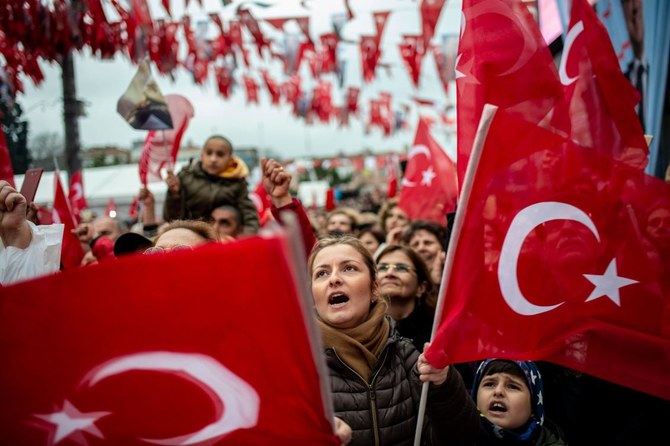ISTANBUL/ANKARA: Turkey's main opposition candidate was declared Istanbul's mayor on Wednesday after election recounts were finally completed, despite an appeal still pending by President Tayyip Erdogan's AK Party to re-run the vote in the country's largest city.
The final result of the March 31 local elections showed a narrow victory for the secularist opposition Republican People's Party (CHP) in Turkey's commercial hub, ending 25 years of control by the AK Party (AKP) and its Islamist predecessors.
The loss is especially hard for Erdogan, who launched his political career in Istanbul as mayor in the 1990s and has triumphed in more than a dozen elections since his Islamist-rooted AKP came to power in 2002.
The Turkish lira, which has dipped since the election, firmed on Wednesday.
As he formally took office after a campaign which featured months of harsh rhetoric from Erdogan's AK Party and more than two weeks of challenges and recounts, Ekrem Imamoglu promised to work for all 16 million residents of the city.
"We never gave up, we never gave up on our battle for democracy and rights," he told supporters at Istanbul's municipality building. "We are aware of our responsibilities and the needs of this city. We will start to serve immediately."
Imamoglu's margin of victory - the final count put him some 13,000 votes, or less than 0.2 percentage points, ahead of the AK Party candidate and former prime minister Binali Yildirim - prompted several AKP challenges.
On Tuesday, after 16 days of appeals and recounts, the AKP asked the High Election Board (YSK) to annul and re-run the election in Istanbul over what it said were irregularities. Its nationalist MHP allies made a similar request on Wednesday.
"We are aware there are ongoing processes... We hope the relevant authorities will complete these processes in the most sensitive and just way," Imamoglu said.
"TOO MANY IRREGULARITIES"
The repeated challenges by the AKP and MHP have fuelled frustration among opposition supporters which spilled over into football stadiums at the weekend when fans chanted at top Istanbul derby matches for the mayoral mandate to be given to their candidate.
"There are way too many irregularities," AKP Deputy Chairman Ali Ihsan Yavuz said, presenting the party's justification for its demand for a new vote. "We are saying that organised fraud, unlawfulness and crimes were committed."
CHP Deputy Chairman Muharrem Erkek responded that there were "no concrete documents, information or evidence in the AKP appeal for an annulment."
"There is no legitimate reason at all. You are using your right (to appeal) to damage the will of Istanbul," he said.
While the AKP was defeated in the battle for Istanbul mayor, results showed the party had won most seats in its municipal councils. The AKP's re-run appeal applies only to the mayoral elections, not those for municipal councils.
Wolfango Piccoli, co-president of Teneo political risk advisers, said it was puzzling to call only for a re-run of the mayoral elections, and added that some of the areas where the AKP claimed fraud took place were under its responsibility.
Uncertainty over the election results has also put pressure on financial markets, pushing the lira down nearly 5 percent.
"From the market perspective, an extended period of uncertainty around elections is a bad idea — it would suggest more election-related policy easing which is bad for the rebalancing story," Tim Ash, senior emerging markets strategist at BlueBay Asset Management, told Reuters.
Erdogan had vowed that Turkey would enter a four and half year period with no elections after March 31, during which the ailing economy would be the focus. If the AKP appeal is upheld, Istanbul, which makes up more than a third of Turkey's economy, will head to polls again on June 2.
























